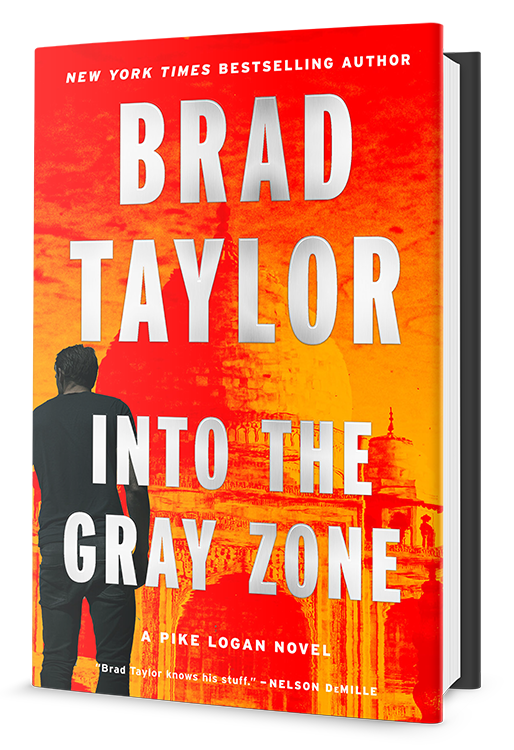During my last assignment as an Assistant Professor of Military Science, students would always ask me to recommend books for them to read. Here, in no particular order, are the ones I most often suggested. With the exception of the 9/11 commission report, all of these were chosen because of their “readability” and/or brevity. There aren’t any boring texts here.
The Crisis of Islam. Bernard Lewis. A great little book on the dynamics of modern day Islam, written by a true expert in the field. You could actually pick up any of his books, but I like this one.
Unholy War – Terror in the Name of Islam. John L. Esposito. Another great book written by a scholar of Islam. An in-depth discussion on the meaning of Jihad and how it’s applied in modern times.
Ghost Wars. Steve Coll. Simply the best book written on our involvement in Afghanistan, from the Soviet invasion to September 10, 2001. If you want to understand why we’re in Afghanistan – both the good and the bad – it’s required reading.
Rise and Kill First. Ronen Gergman. A well researched history of Israel’s targeted killing campaign as a tool of counterterrorism, from the establishment of the State of Israel to the modern day. While it’s written by a journalist, and thus ripe for mistakes and agendas, the lessons learned are directly applicable to our own counterterrorism strategy, be that by drone strike or by an assault from a SOF force.
9/11 Commission Report. U.S. Government. Not exactly a great read, but a wealth of information on the 9/11 attacks.
Mao Tse-Tung on Guerrilla Warfare. Translated by Samuel B. Griffith. Might as well read the man who pretty much invented modern day asymmetric warfare if you want to understand it.
Inside Terrorism. Bruce Hoffman. I hesitated to put any terrorism specific books on here, because they are so widely divergent in subject matter and expertise. Everyone claims to be an “expert” nowadays. I picked this one because Bruce Hoffman really is an expert, and it’s probably the best “starter” book I’ve seen on the phenomenon. Not too long or too detailed. It is pre-9/11, so it’s a little dated, but the precepts still hold true. There’s an updated copy from 2006, but I haven’t read it.
Dying to Win. Robert A. Pape. The only other terrorist specific book on the list, it deals with suicide terrorism by breaking down everything statistically. Some results are surprising. Some I disagree with. Still good to know.
Phoenix and the Birds of Prey. Mark Moyar. An in-depth look at the Phoenix Operation of the Vietnam War, where we attempted to eradicate the Vietcong shadow government, separating them from the populace. Phoenix has gotten a bad rap from the press and Hollywood, but this book looks at both the warts and the successes, which is something anyone looking at Afghanistan should do as we face the Taliban and their own shadow government.
One Day in September. Simon Reeve. The story of the 1972 Munich massacre and the Israeli response using hit teams. A good primer on the Israeli/Palestinian problem as well as covert counterterrorist operations, both the risks and the rewards. Something the Israelis have learned in spades. Reads like a novel.
From Beirut to Jerusalem. Thomas Friedman. An oldie but goody. Very insightful look at the regional conflicts of Israel and Lebanon told through vignettes. If you were only going to read one book about the Middle East, it should be this one.
The Road to Fatima Gate. Michael J. Totten. Excellent insight from a journalist who lived through the Beirut Spring. An insiders view of the politics of Lebanon, Syria, Israel, and Iran and a good primer on the ongoing Arab Spring.
The Secret War against Hanoi. Richard H. Shultz, Jr. An outstanding account of U.S. covert activities during the Vietnam War. Some well worth the effort, others downright tragedies. Lessons learned there are still very applicable in today’s fight, the prime one being a coupling of the activity with greater policy goals.
Recce. Koos Stadler. The only SOF specific book on the list. I could have pulled a hundred American books down, because I’ve read most of them, but I figured I’d include this one, about the South African Reconnaissance Commandos, because the author has done as much or more than any US SOF, and his book rings true all the way around. I bought it in Cape Town while researching Operator Down. I wanted to learn about the Recce Troops, but I became engrossed in his story as a fellow soldier. Some things are just universal.
War of the Flea. Robert Taber. A classic study of guerrilla warfare, applicable in today’s asymmetric environment. A little over-the-top on the “power of the peasant”, but still a good read.
Facing the Phoenix. Zalin Grant. Powerful discussion on the political defeat of the U.S. during Vietnam, which preceded the military defeat. The political defeat inside Vietnam in the fight for “hearts and minds”, not in the US. Once again, applicable for today’s environment. Very readable as well.
This Kind of War. T.R. Fehrenbach. Classic history of the Korean War. Why is it here? Written in 1963, it has an insight into the American conduct of war, namely that our Army is a direct reflection of our society – unlike other countries – and that reflection can be both good and bad.
Citizen Soldier. Stephen Ambrose. This was required reading when I was a new troop commander. It covers WWII, when the world was full of tigers and we knew it. Unfortunately, the lessons within it are learned over-and-over again on every battlefield we enter.
Love Thy Neighbor, a story of war. Peter Maas. Gripping account of the tragedy that was Bosnia. Written by a journalist, so it’s very easy to read. A good snapshot into the savagery humans are capable of, for no greater reason than a difference in religion.




